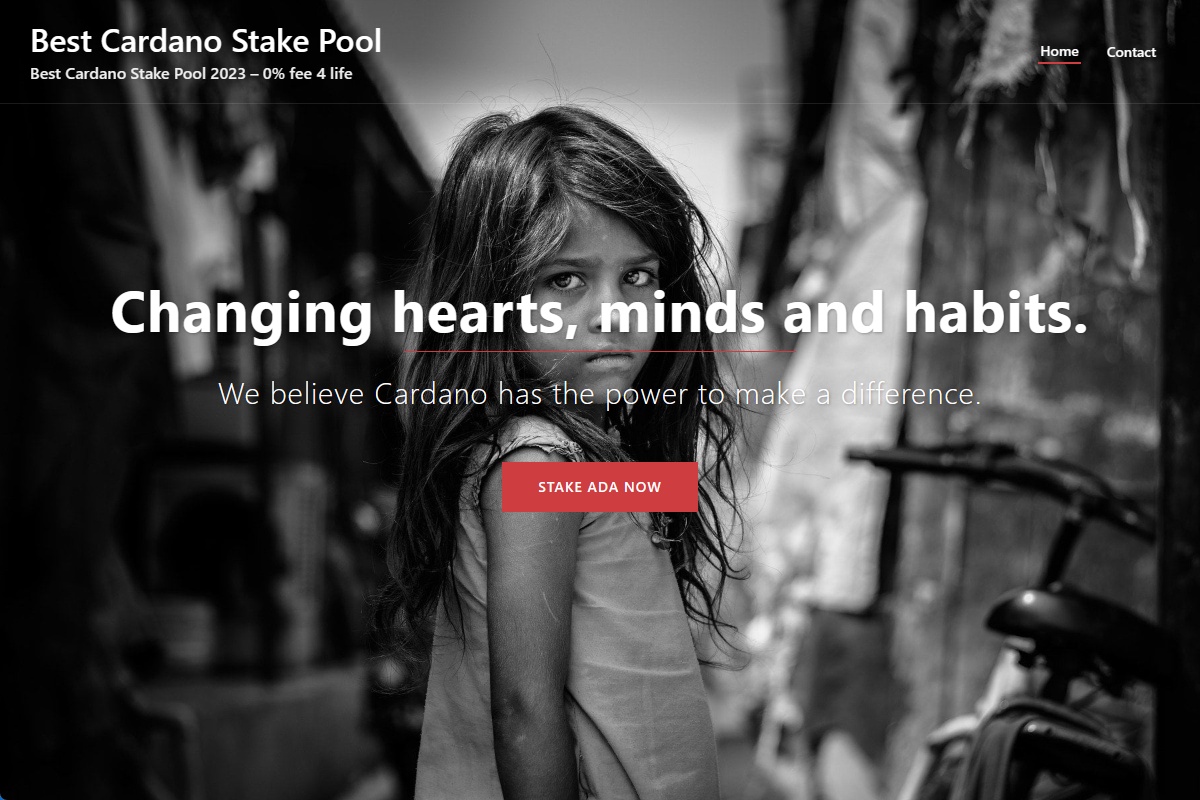Staking Cardano is just one of the numerous revenue options made possible by the introduction of cryptocurrency. By staking your Ada (Cardano) to support blockchain activities, you can earn passive income. However, before diving into staking, it is essential to consider some critical factors.
Let’s go!
What is Staking?
Staking Ada, the native cryptocurrency of Cardano on a cryptocurrency exchange can involve locking up your Ada for a specific period to validate transactions and add new blocks to the blockchain. As a reward for your active participation in securing the Cardano network, you receive additional Ada (Cardano), similar to earning interest on your investment. Staking is vital in proof-of-stake (PoS) cryptocurrencies like Cardano, where participants are incentivised to contribute to network security.
Is there a downside to staking Cardano?
Staking Ada (Cardano) certainly has its advantages, but it’s crucial to be aware of the potential risks and drawbacks before diving into the world of staking Cardano. Similar to all investments, staking Cardano comes with its fair share of uncertainties and trade-offs.
Among the primary concerns associated with staking Cardano is the price volatility of cryptocurrencies. The market can be highly unpredictable, with prices experiencing significant short-term fluctuations. While Cardano staking rewards can be attractive, they might not always compensate for sudden drops in the value of your staked Ada. This could potentially lead to losses if you need to sell or liquidate your Ada during a market downturn.
Additionally, staking Ada on a cryptocurrency exchange can involve locking up your Ada for a predetermined period. While this commitment can provide stability and consistent Ada rewards, it also means that you won’t have immediate access to your Ada funds. If an urgent financial need arises, you might be unable to tap into your staked Ada until the lock-up period ends.
Furthermore, not all staking platforms or services are created equal. Some Cardano stake pools may have higher fees or less favourable terms and this is particular true for centralised cryptocurrency exchanges. This affects your overall return on stake (RoS). Conducting thorough research and selecting reputable and dependable stake pools that align with your investment objectives, values and risk tolerance is paramount.
Despite the possible downsides, it’s important to acknowledge that Cardano staking has become increasingly popular for generating regular passive income. It is crucial to approach staking with a balanced mindset, understanding that higher rewards may also come with increased risks, especially when staking Cardano on a cryptocurrency exchange.
Why You Shouldn’t Stake Cardano on a Crypto Exchange?
(Top 6 Reasons)
- Cut out the Middlemen
Cryptocurrencies where invented to make the world a better and equal place for all. Cardano was built with a huge emphasis on decentralisation, to provide people with financial freedom, independence and to cut out the middlemen. Crypto exchanges are middlemen, profit oriented, centralised companies that will not do business for free or for the common good. If you want to follow and support the Cardano cryptocurrency philosophy then do not stake Ada on cryptocurrency exchanges.
- Vulnerability to Hacks
Security concerns surrounding exchanges have been a significant issue within the cryptocurrency space. Several high-profile exchange hacks have lost millions of dollars worth of cryptocurrency. For instance, in 2019, the Binance exchange suffered a breach in which hackers stole over $40 million in Bitcoin. These incidents highlight the vulnerability of centralised platforms, where your Cardano is at the mercy of the exchange’s security measures. By keeping your private keys off exchanges, you can significantly reduce the chances of falling victim to a security breach and take charge of safeguarding your assets.
- Lack of Control
When you stake Cardano on an exchange, you essentially hand over control of your Ada (Cardano) to the platform. The exchange then has the authority to decide how your assets are used, including staking them for its own benefit. This lack of control contradicts the core philosophy of cryptocurrencies, which empowers users to have direct ownership and management of their digital asset (Cardano). By using personal wallets and managing your private keys, you retain full control over your Ada (Cardano), ensuring that you are the sole decision-maker when it comes to their usage.
- Limited Access to your Ada
Staking Cardano on cryptocurrency exchanges can involve locking up your Ada (Cardano) asset for a predetermined period to support the blockchain network’s consensus mechanism and the exchanges profits. While staking can yield attractive rewards, your funds may become illiquid during the staking period. If you suddenly need to access your funds for unforeseen expenses or investment opportunities, you might encounter restrictions and delays on the exchange. In contrast, using personal wallets allows you the flexibility to manage your assets as needed, ensuring you can respond quickly to market changes or capitalise on potential gains as staking Cardano from an official Cardano wallet never requires you to lock up your Ada.
- Risk of Loss
Cryptocurrencies are infamous for their price volatility, with substantial price swings being a common occurrence and Cardano is no exception. By leaving your Ada on an exchange, you expose yourself to the risk of significant losses during market downturns. If the value of your Ada (Cardano) plummets, you might not have the option to withdraw or mitigate the damage. On the other hand, managing your private keys allows you to take a more proactive approach to protect your investments, such as moving your Cardano assets to safer Assets during uncertain times.
- Centralisation Risks
Staking on cryptocurrency exchanges can contribute to centralisation issues within the Cardano ecosystem. When many tokens are held on exchanges, these platforms wield considerable influence over the network’s consensus and decision-making processes. This concentration of power goes against the fundamental principle of decentralisation, which aims to distribute control and authority among the network’s participants. By staking your assets outside of exchanges, you support the decentralisation of the blockchain network and promote a more resilient and democratic ecosystem.
Centralisation vs. Decentralisation: A Comparison
Centralisation and decentralisation are two contrasting approaches to governance and control within the cryptocurrency world. Each option has its own advantages and disadvantages, and it is essential to comprehend these distinctions to make well-informed choices, particularly when considering staking your Cardano cryptocurrency assets.
Centralisation is a structure where many entities or individuals hold significant decision-making power and control. In centralised networks, a single authority or a small group has the power to validate transactions and make important decisions. This setup often leads to faster decision-making and efficient operations. However, it comes at the cost of reduced transparency, increased vulnerability to hacking, and a lack of individual user control over their assets.
Conversely, decentralisation disperses authority among a diverse array of participants. In decentralised networks, decision-making is distributed among numerous independent validators, reducing the influence of any single entity. This approach enhances transparency, security, and resilience, as there is no single point of failure. Decentralised systems are more aligned with the core principles of Cardano, promoting a trustless and permissionless environment.
The choice between centralisation and decentralisation becomes critical when it comes to staking cryptocurrencies. Staking on centralised exchanges might seem convenient, as the exchange handles all the technicalities. Still, it also exposes users to the risks associated with entrusting their assets to a single entity. In contrast, staking Cardano on decentralised platforms offers several advantages.
Cardano operates on a proof-of-stake consensus mechanism. Unlike Bitcoin and earlier versions of Ethereum, which rely on energy-intensive proof-of-work mechanisms, Cardano’s approach is eco-friendly and more futureproof. To secure the network, users can become validators or delegate their Ada to the Best Cardano Stake Pool, a reputable staking pool known for its reliability, exceptional performance and not-for-profit business model.
By staking Cardano and choosing the Best Cardano Stake Pool, users contribute to the network’s decentralisation and security. Randomly chosen validators analyse transactions and add new blocks to the blockchain, collecting rewards for their labour. This system ensures a fair power distribution and makes it economically infeasible for any single entity to dominate the network.
Additionally, staking Cardano enables users to actively participate in the growth of the platform and the cryptocurrency’s ecosystem. Cardano’s dedication to decentralisation is in line with the fundamental tenants of blockchain technology, promoting a more open and inclusive financial environment.
Conclusion
While staking Cardano offers the potential for passive income, the decision to stake your Cardano on an exchange should be approached with sensitivity. Vulnerabilities to hacks, lack of control, limited access to funds, risk of loss, and centralisation risks are crucial factors to consider. By using personal wallets and safeguarding your private keys, you can enhance the security and control of your digital assets, aligning with the core principles of the decentralised cryptocurrency movement. To confidently negotiate the world of staking and cryptocurrency investments, always remain informed and make well-informed decisions.

Stake your Ada at 0.00% fee, Earn 100% Rewards, Give Water, Save Lives, Everyone Wins!
We appreciate your interest in Cardano and decentralisation. If you wish to support Cardano and our stake pool, you can stake your ADA with the Best Pool Ever. Save lives as you maximise your rewards with a not-for-profit stake pool that has the lowest 0.00% fee and the highest 100% rewards.
The Best Cardano Stake Pool ticker is BPE
https://bestpoolever.com


No comments yet